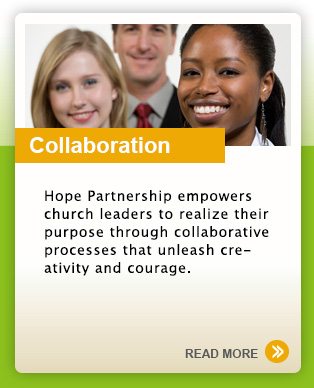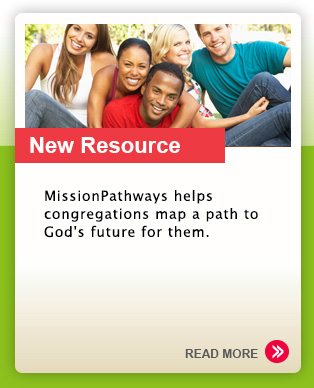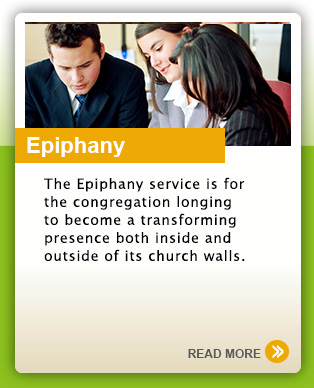For the congregation that wants to move forward and needs a plan.
Hope’s Mission Pathways Service is not a church growth program, even though many churches grow as a result. It is a LEADER DEVELOPMENT process that may lead to church growth or transformation depending on the work of the leaders of that congregation. It is a non-synoptic approach that redirects the focus of leaders towards the adaptive questions that lead to deeper insight and clarity of purpose.
The process is unique in that it is not consultant-based nor content-based—but a behavioral approach that enables congregational leaders to ask the right questions that lead a congregation towards adaptive change. The process involves both lay and clergy leaders and is made up of two phases, which are described below.
Set-UP (Train the Facilitator)
During the set-up phase, On a mutually agreed upon date and time, Hope will send an experienced Facilitator to train Judicatory Facilitators to deliver the Leadership Training of Phase One and to do the Coaching in Phase Two. This training may be delivered virtually due to Covid-19 restrictions.
PHASE ONE
- Assessment of the current ministry of the church, discovery of church strengths and
- Leadership Development to help the congregation understand the changes in spiritual practices in this new era and why “mission-driven” churches are changing the landscape of Church
- House Meetings to reorient to new ways to think about the church and its role in the community and to choose a bold
ASSESSMENT
On a mutually determined date at least 4 weeks out from the scheduling date, Hope will send an assessor to the church for ~6 hours to get to know the church and the setting firsthand. The assessment may take place virtually due to Covid-19 restrictions, with various meetings of assessor and church leaders at mutually agreed upon dates/times.
During the assessment visit your Hope Assessor will:
- Meet with moderator/clergy leader
- Meet with your treasurer/financial officer and review financial statements
- Tour your building and property to learn how the building is used and maintained
- Tour your neighborhood
- Hold an open forum Appreciative Inquiry Session for church members to share the ways your church has excelled in meeting spiritual, missional, and relational
- Identify the programmatic and missional strengths of your church
- Research the area demographics
Following the assessment visit, a report will be written by the assessor that will name your congregation’s current condition. It will include:
- Your congregation’s demographics and membership tenure
- A pin map showing the location of your members in location to the church
- Your Community demographics and neighborhood trends
- Financial history and analysis
- Building condition and usage
- Ministry activities and metrics of your congregation’s vitality
Leadership Training
On a mutually determined date at least 6 weeks after the Assessment visit, the Judicatory will send a trained Facilitator to the church for a Friday evening-Saturday Leadership Training—designed to prepare the congregation for the House Meetings and to develop House Meeting Leaders who will feel confident to lead the small groups in a healthy conversation about the future of their church. This training may take place virtually due to Covid-19 restrictions. If done virtually, it may be best to do the training over 2-3 weekends to reduce screen fatigue for participants.
Leader Training happens over a Friday evening and Saturday and includes:
- Friday evening: Any church participant interested in the future of the church is invited to learn more about how spirituality practices have changed in North America and why Mission-driven churches are “changing the ”
- Saturday: Those selected as House Meeting Facilitators will understand their role as facilitators and discover how they can guide church participants through the House To do this, the House Meeting Facilitators are trained on how to explain and interpret the Assessment Report and to lead a healthy discernment process using videos and prepared questions using a clear House Meeting Facilitator’s Guide.
HOUSE MEETINGS
There will be one House Meeting for every 10-12 participants. This set of four small-group conversations will introduce the Assessment Report to the congregation, and each meeting will focus on one of four questions:
- What does a vital congregation look like?
- What does our Assessment Report say?
- What does it mean to be a missional church?
- What Future Story makes the most sense for us?
Phase II
Phase II takes off where Phase I ended – once the congregation has made a bold decision about their future, in Phase II they will write their own Future Story, develop a capacity building/implementation plan, and begin to live into their Future Story.
Congregations moving ahead to Phase II will have a Leadership Team that includes the pastor and 5-7 church leaders who have high levels of trust within the congregation, are creative/strategic thinkers, and have good communication skills. Each event will be facilitated by a Hope Contract Facilitator and hosted by a Judicatory Coach.
In the time between these retreats, held every 2-3 months, there will be homework and activities for the Leadership Team in their congregations.
- All materials needed for each retreat will be shared after the previous retreat.
Coaching occurs in clusters at a mutually agreed upon time between the cohort and the coach within one week after each of the four retreats. Another eight coaching sessions will happen one each month after Retreat 4, also at mutually agreed upon times.
- Coaching sessions will last 90 minutes.
To-Do Before Retreat 1
- Pastors to determine and finalize who will be on their Leadership Team
Retreat 1: Leadership Development (8 hours)
This retreat is for Pastors and their Leadership Teams clustered as determined.
Most pastors have engaged in various forms of leadership training either at work or in their life experiences. Most are taught the skills of transactional leadership, which improves their management. Transformational leadership, on the other hand, is very different, since it moves volunteers to a place where they never thought they could go. It is a leadership style that moves beyond managing a congregation and towards creating a faith community that makes a difference that is culturally relevant. It also mobilizes resources (volunteers, facilities & finances) for meaningful mission.
At the end of the first cluster, pastors and leadership teams will have a firm grasp of what it means to be transformational leaders.
- As part of Retreat I, participants will take part in several experiential exercises.
- The last session of Retreat I will be a 90-minute Group Coaching session with Pastors and/or Leadership Teams.
At end of Retreat I, each pastor will need to share with leadership team the “homework” assignments and prep needed for Retreat II.
To-Do Between Retreat 1 and Retreat 2
- Leadership Teams to read and analyze the Assessment Reports using the provided materials
- Pastors and Leaders will gather to share their “Whys”
- Each team member to ponder and decide on their own, personal “Why”
- Each Leadership Team to work on what they think their congregational “Why” might be
- Community Interviews to take place during this time using the provided materials
Retreat 2: Future Story Development (8 hours)
This retreat is for Pastors and their Leadership Teams clustered as determined.
This retreat focuses on naming the assets their church has for mission, naming the greatest needs of the community (spiritually as well as physically), and creating a future story that redirects the focus of the congregation. Leaders will engage their creativity using a variety of methods that will lead away from a membership model of being a congregation and towards a missional model. The retreat will end with a clear idea of the elements of a Future Story.
To-Do Between Retreats 2 and 3
- Continue working on and finish writing Future Story (examples will be provided)
- Get acquainted with the Capacity Building/Implementation process (will be in provided materials)
- Finalize and Carry Out 21-Day Challenge
Retreat 3: Capacity Building (8 Hours)
This retreat is for Pastors and their Leadership Teams clustered as determined.
This retreat will help the Leadership Team unpack their Future Story and, using templates, begin the process of living into it. Capacity building will move the team through reviewing their story, naming elements, prioritizing, then developing the list of 4 Capacities (Technical needs, Adaptive needs, Leadership needs, Naming Resources).
This cluster will help the Team identify timelines and choose projects to initiate. Leaders will learn how to suspend judgment and how to prototype quickly. It will conclude with the development of an Implementation Timeline.
Included in this retreat:
- Review
- Share Future Stories
- Report on 21-Day Challenges
- What is a Capacity Report?
- How to build a Capacity Report
- At end of Retreat III, “homework” assignments and prep needed for Retreat 4 will be shared.
- Worship and Commissioning
- The last session of Retreat III will be a 90-minute Group Coaching session with Pastor (and possibly Leadership Team)
Between Retreat 3 and Great Commission Retreat
- Finalize Capacity/Implementation Plan
- Actively design and implement the Pentecost Project
- Begin Implementation of Capacity Plan
Great Commission Retreat
This retreat, held six months after Retreat III, is led by Coaches and Mid-Level Judicatory Staff for Pastors and their Leadership Teams clustered as determined.
- The leadership team has been working on refining their Future Story and developing the Capacity Plan. The Pentecost Project has commenced. The congregation has received a status report of what has been done and what the next steps are in this journey.
- Time has been spent in work with the local congregation (Jerusalem); now you prepare to go beyond the church walls into your immediate community (Judea), your greater community (Samaria) and possibly even unto the global ministry expression (the ends of the world).
- Coming together in this retreat with the members of your cohort will provide a space to celebrate victories and learn from your experiences. This is an opportunity to explore possible places of collaboration for ministry int the community, and the leveraging of shared resources for greater impact in the work of the congregations.
After Retreat 4
- Continue Pentecost Project
- Begin further implementation of Future Story
- Continue remaining Coaching Sessions
Timeline
Phase I Assessment: 4-6 weeks after application received by Hope
Phase I Leadership Training: At least 6 weeks after Assessment
Phase I House Meetings: Will start 2 weeks to 1 month after Leadership Training and meet every 2 weeks
Phase II Retreat I: Held 2-3 months after House Meetings
Phase II Retreat 2: Held 2-3 months after Retreat 1
Phase II Retreat 3: Held 2-3 months after Retreat 2
Phase II Great Commission Retreat: Held 6 months after Retreat 3



